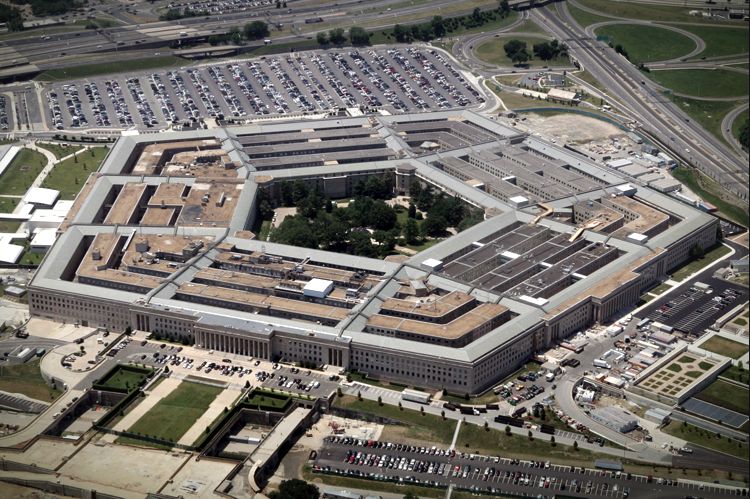New York’s 9/11 Memorial at Ground Zero is an everlasting reminder of the devastation Al-Qaeda caused my city, among others on the morning of September 11, 2001.
On that morning, the President of the United States was unable to get a reliable TV signal from Air Force One (where he was seeking protection), let alone grounded intelligence regarding the attacks. Consider that for a moment — the most powerful person on the planet was, in many regards, “in the dark” about the tragedies that occurred that morning at the Pentagon and on Manhattan’s southern tip.
September 11th was the manifestation of the threat terrorism posed to the United States. While the threat for additional attacks continues to exist, the U.S. boasts some of the world’s most sophisticated and advanced intelligence agencies whose job it is to discover threats before they present themselves. In many ways, 9/11 was a wake-up call for international intelligence agencies to up their game.
With access to U.S. military resources and significant financial resources, you would think that U.S. intelligence agencies, as well as many of their foreign counterparts would be almost exclusively using shockingly complicated mechanisms to gather information.
You’d be wrong.
In 2004, Facebook was launched as a networking site for college kids. Today, with more than 1.7 billion monthly users, Facebook is one of many social networks being used by intelligence agencies to gather information and leads.
One of the most common dramatizations of intelligence agencies is the use of sophisticated facial and image recognition software. The widespread visibility of these technologies in big-budget films is shockingly a relatively accurate portrayal of the prevalence of these technologies in the real-world.
However, many agencies, including the Defense Intelligence Agency (DIA) are manipulating this type of software in conjunction with the database of photos on platforms like Facebook to gather meaningful intel. According to the Wall Street Journal, the DIA used Facebook and in-house facial recognition software to help gather information regarding MH17, the Malaysia Airlines 777 that was shot down over eastern Ukraine.
Increased news coverage of similar efforts has drawn attention to the increasing use of social media platforms as tools in federal investigations, as have disputes between the government and technology companies like Apple, regarding the obligations these companies have with regard to the preservation of their users’ privacy, as well as to government intelligence agencies.
In the widely covered San Bernardino shooting, Apple refused to generate software that would allow the Federal Bureau of Investigation unlimited guesses at the shooter’s iPhone password. The iPhone is password protected and is designed to wipe the hard drive of a device after a number of incorrect guesses. The FBI was looking to use software intended to crack passwords, but could not implement the software without removing this limit. The ongoing controversy has drawn attention to the moral dilemma that exists for major internet and tech companies whose products have achieved such ubiquity that they are instrumental to any productive intelligence effort.
Since the inception of intelligence agencies, their principle effort has been to follow people and gather information. In the 21st century, following people takes on a very virtual meaning as well. We are the only species currently documenting our lives in a virtual ecosystem. Less and less (if at all) are we relying on physical documentations of our lives. Subsequently, any intelligence effort has had to use different techniques to gather information.
Today marks the 15th anniversary of the attacks of 9/11. It is impossible to understate the devastation of that September morning, the crippling impact it had on the American economy, psyche and our way of life. In the months and years before 9/11, intelligence efforts in the Middle East were strained by mixed intel, bad leads, and a shortage of information.
Now, we have the capacity to do extraordinarily thorough intelligence of both domestic and foreign threats. In 15 years, the technology ecosystem has changed completely, and society is increasingly resistant to intelligence agencies monitoring internet activity and social media activity.
People frequently say “never forget,” I think it is fundamental that we remember as a country, that we are always at risk, and intelligence agencies serve to mitigate that risk. So before bashing the efforts of these agencies online, remember that there fundamental goal is the protection of the American people.
No-one can say where we will be in another fifteen years, but in the same way that our lives have changed enormously in the past fifteen, we are likely to be using completely different platforms in 2031. By then, intelligence agencies will have had to develop new techniques to continue to stay one step ahead of terrorists plotting attacks on American soil. We absolutely should hold these agencies accountable to do so — but we cannot resist their efforts to a degree where they can no longer do their jobs.
This is a Contributor Post. Opinions expressed here are opinions of the Contributor. Influencive does not endorse or review brands mentioned; does not and cannot investigate relationships with brands, products, and people mentioned and is up to the Contributor to disclose. Contributors, amongst other accounts and articles may be professional fee-based.

